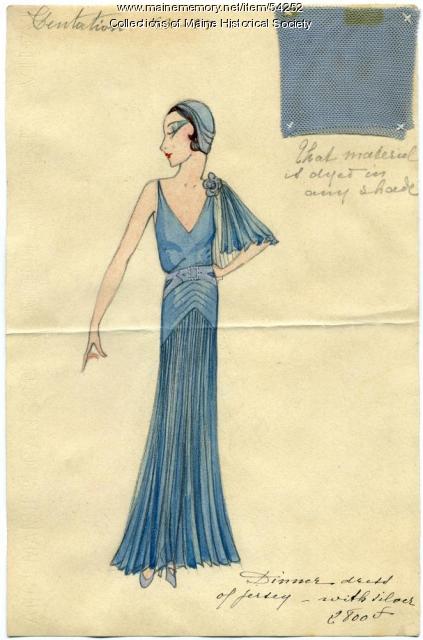Keywords: fun
- Historical Items (47)
- Tax Records (0)
- Architecture & Landscape (0)
- Online Exhibits (13)
- Site Pages (37)
- My Maine Stories (17)
- Lesson Plans (0)
Online Exhibits
Your results include these online exhibits. You also can view all of the site's exhibits, view a timeline of selected events in Maine History, and learn how to create your own exhibit. See featured exhibits or create your own exhibit
Exhibit
By the second half of the 20th century, skiing began to enjoy unprecedented popularity. Pleasant Mountain in Bridgton (later Shawnee Peak) was Maine's foremost place to join the fun in the 1950s and 1960s.
Exhibit
Success at riding a bike mirrored success in life. Bicycling could bring families together. Bicycling was good for one's health. Bicycling was fun. Bicycles could go fast. Such were some of the arguments made to induce many thousands of people around Maine and the nation to take up the new pastime at the end of the nineteenth century.
Exhibit
Rum, Riot, and Reform - Quenching the Thirst
"… By the turn of the century, postcards poking fun of Maine's dry status were popular items. X Collected Poems of Edward Arlington Robinson…"
Exhibit
Imagery on letterhead soldiers used, on soldiers' memorials produced after the war, and on many other items captured the themes of the American Civil War: union, liberty, and freedom.
Exhibit
Cosmopolitan stylings of Mildred and Madeleine Burrage
Born in Portland, sisters Mildred Giddings Burrage (1890-1983) and Madeleine Burrage (1891-1976) were renowned artists and world travelers. Mildred's experiences studying painting in Paris and Italy, and the sisters' trips to Mexico and Guatemala inspired their artwork and shared passions for cosmopolitan and stylish attire. Housed at Maine Historical Society, The Burrage Papers include selections of original advertising drawings called "line sheets" from Parisian fashion houses dating from 1928 to 1936. Images of Madeleine's gemstone jewelry and Mildred's artwork accompany intimate family photographs of the sisters.
Exhibit
MY ISLAND HOME: Verlie Colby Greenleaf of Westport Island
Verlie Greenleaf (1891-1992) bore witness to over a century of Westport Island's history. Many changes occurred during Verlie's 100-year life. Verlie Greenleaf donated photographs, personal notes, and sat for an interview in 1987, all part of the Westport Island History Committee's collection. Her words frame this exhibition, providing a first-person account of her life.
Exhibit
John P. Sheahan, 1st Maine Cavalry, 31st Maine Infantry
John P. Sheahan of Dennysville served in the 1st Maine Cavalry from August 1862 until March 1864 when he was commissioned as a lieutenant in Co. E of the 31st Maine Infantry. His letters reveal much about the life of a soldier, including political views and thoughts about the war.
Exhibit
War Through the Eyes of a Young Sailor
Eager to deal with the "Sesech" [Secessionists], young deepwater sailor John Monroe Dillingham of Freeport enlisted in the U.S. Navy as soon as he returned from a long voyage in 1862. His letters and those of his family offer first-hand insight into how one individual viewed the war.
Exhibit
A City Awakes: Arts and Artisans of Early 19th Century Portland
Portland's growth from 1786 to 1860 spawned a unique social and cultural environment and fostered artistic opportunity and creative expression in a broad range of the arts, which flowered with the increasing wealth and opportunity in the city.
Exhibit
Home Ties: Sebago During the Civil War
Letters to and from Sebago soldiers who served in the Civil War show concern on both sides about farms and other issues at home as well as concern from the home front about soldiers' well-being.
Exhibit
We Used to be "Normal": A History of F.S.N.S.
Farmington's Normal School -- a teacher-training facility -- opened in 1863 and, over the decades, offered academic programs that included such unique features as domestic and child-care training, and extra-curricular activities from athletics to music and theater.
Exhibit
Immigration is one of the most debated topics in Maine. Controversy aside, immigration is also America's oldest tradition, and along with religious tolerance, what our nation was built upon. Since the first people--the Wabanaki--permitted Europeans to settle in the land now known as Maine, we have been a state of immigrants.
Exhibit
Begin Again: reckoning with intolerance in Maine
BEGIN AGAIN explores Maine's historic role, going back 528 years, in crisis that brought about the pandemic, social and economic inequities, and the Black Lives Matter movement in 2020.













